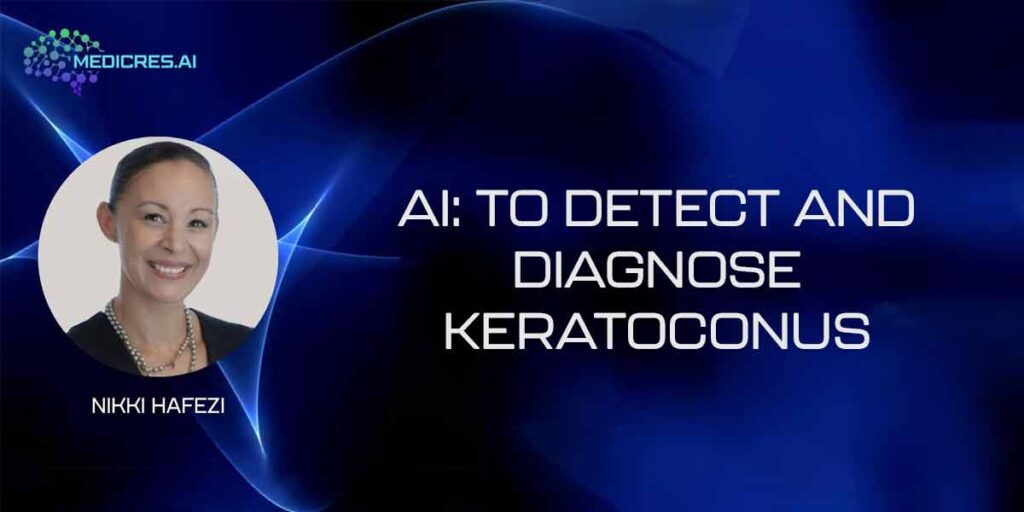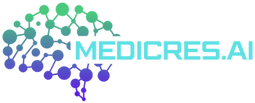On February 23, 2024, Nikki Hafezi, MAS IP ETHZ, delivered a presentation titled “AI – To Detect & Diagnose Keratoconus” at the MEDICRES.AI 2024 online conference. This well-attended event, hosted by the Medical and Clinical Research Support Society, featured a spectrum of experts from various medical disciplines, with a dedicated focus on leveraging artificial intelligence (AI) to bolster global health.
Hafezi’s discourse shed light on the advanced methodologies for keratoconus detection, in particular AI algorithms for the detection of early “forme fruste” cases, using the latest generations of Scheimpflug topographers and optical coherence tomography (OCT)-based devices. These sophisticated tools, coupled with the latest detection algorithms, have marked a significant stride in identifying even the most subtle forms keratoconus with high precision. Furthermore, Hafezi introduced an innovative approach using portable, cost-effective smartphone-based devices to evaluate corneal topography “in the field” in order to dramatically expand the capabilities of healthcare professionals to perform keratoconus screening, which is, of course, a leading cause of preventable blindness among children. These mobile devices, while not as sensitive as the advanced devices one might find in a hospital setting, when enhanced with AI-driven diagnostics, offer a promising solution for widespread screening, particularly in remote and underserved regions.
The amalgamation of smartphone-based keratographer screening and the newest generation of portable, battery-operated corneal cross-linking devices could signify a monumental shift in the accessibility of keratoconus detection and treatment. This breakthrough has the potential to extend care to areas previously unreachable, dramatically increasing the chances of preserving vision in numerous children and young adults affected by keratoconus.
In her closing remarks, Hafezi expressed her profound gratitude towards the MEDICRES.AI congress organizers and their scientific committee for the invitation and opportunity to contribute to this transformative discussion, highlighting the critical role of AI in advancing keratoconus detection and care.
This presentation underscores the evolving landscape of ophthalmic care, where AI and portable technologies converge to make keratoconus detection more accessible, efficient, and impactful, particularly in regions where such advancements were once deemed unattainable.

